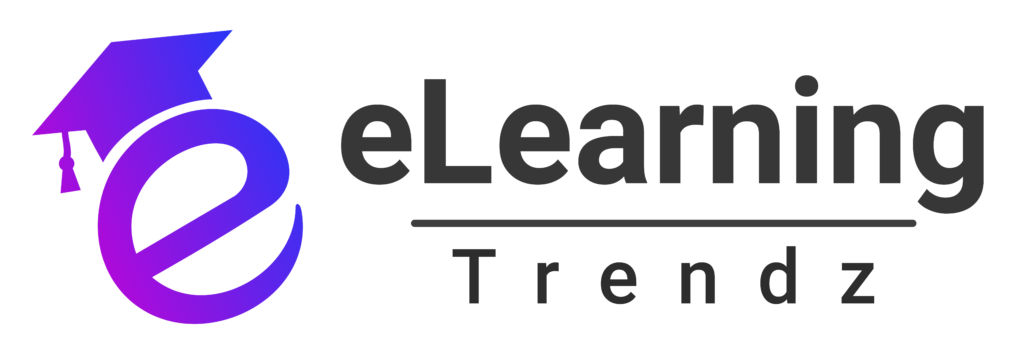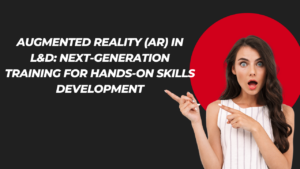Nonprofit organizations play a critical role in addressing social issues, providing services, and advocating for important causes. However, many nonprofits face the challenge of maximizing impact with limited resources. One area where nonprofits can enhance their efficiency and effectiveness is in staff and volunteer training. A Learning Management System (LMS) offers an ideal solution to deliver cost-effective, scalable, and impactful training programs for nonprofit organizations. In this blog, we’ll explore how LMS for nonprofits can help streamline training processes, improve performance, and ultimately maximize their impact on the community.
What is an LMS for Nonprofits?
A Learning Management System (LMS) for nonprofits is a digital platform that enables organizations to deliver, track, and manage educational content for staff, volunteers, and other stakeholders. It allows nonprofits to centralize their training materials, provide on-demand learning, and ensure consistency across all training programs. With an LMS, nonprofit organizations can manage a wide range of training programs, from onboarding new staff and volunteers to educating teams about specific social issues, policies, or compliance regulations.
An LMS for nonprofits can be a game-changer for organizations looking to enhance their training efficiency while keeping costs low.
The Need for Effective Training in Nonprofits
Training is crucial in nonprofit organizations for several reasons:
- Maximizing Staff Potential: Volunteers and employees need training to perform their tasks effectively. Whether it’s understanding nonprofit management practices, grant writing, fundraising strategies, or compliance with regulations, well-trained staff are essential for organizational success.
- Consistency Across Teams: Nonprofits often work with multiple teams and volunteers, making it difficult to ensure consistent knowledge across the board. Training through an LMS ensures that all individuals are on the same page, regardless of location or role.
- Compliance and Risk Management: Nonprofits are subject to various regulations, such as financial management and safety standards. Regular training ensures compliance with laws and best practices, reducing the risk of legal issues or financial mismanagement.
- Volunteer Retention and Engagement: Volunteers are the backbone of many nonprofits, and keeping them engaged and trained enhances their experience and loyalty to the cause. Continuous learning opportunities also increase volunteer satisfaction and retention.
How LMS Improves Training for Nonprofits
An LMS offers several advantages for nonprofits looking to improve the effectiveness of their training programs while maintaining a tight budget. Let’s look at how an LMS can help nonprofits:
- Cost-Effective Training Solutions
One key benefit of using an LMS is cost savings. Traditional in-person training can be expensive, especially when factoring in the costs of venues, travel, and printed materials. An LMS offers an affordable alternative by providing online training that can be accessed by staff and volunteers from anywhere. There’s no need for physical resources, and training materials can be reused and updated at a fraction of the cost of in-person sessions. - Scalable Learning Opportunities
As nonprofits grow, their training needs also expand. An LMS can scale easily to accommodate more users, whether onboarding new volunteers or providing ongoing employee training. With the ability to host unlimited users, an LMS can serve nonprofits of all sizes, from small grassroots organizations to large international NGOs. - Flexibility and Accessibility
Nonprofit staff and volunteers often work irregular hours or across different locations. An LMS allows them to access training materials anytime, anywhere, from any device. This on-demand access ensures that individuals can complete training at their own pace without disrupting their work schedules. Whether it’s during off-hours, weekends, or on the go, training is always accessible. - Centralized Training and Resources
Nonprofits often have diverse training needs, from operational skills to fundraising knowledge and compliance protocols. An LMS consolidates all training materials in one platform, making it easy to manage, update, and deliver content. This centralized approach reduces the time and effort spent on organizing separate training sessions or materials and ensures that all training content is consistent and up-to-date. - Tracking and Reporting
An LMS provides nonprofit organizations with robust reporting and tracking tools, allowing administrators to monitor the progress of individual employees and volunteers. Managers can track course completions, test scores, and engagement levels to identify areas where additional training may be needed. This data-driven approach helps nonprofits assess the effectiveness of their training programs and ensure that staff and volunteers are meeting organizational goals and compliance standards. - Gamification and Engagement
Nonprofits can use gamification features in an LMS to engage volunteers and staff. Badges, leaderboards, and achievement milestones can make learning more fun and interactive, motivating users to complete training modules and retain information. Gamification not only enhances engagement but also fosters a sense of accomplishment, encouraging individuals to continue their learning journey. - Onboarding and Orientation
Onboarding is a critical process for new staff and volunteers, ensuring they are familiar with the nonprofit’s mission, values, policies, and procedures. An LMS simplifies the onboarding process by providing standardized training modules that new hires can complete at their own pace. Whether it’s an introduction to the organization’s work or training on specific software tools, LMS platforms can automate the onboarding process, saving time and effort for both staff and trainers.
How LMS Enhances Risk Management and Compliance
Nonprofit organizations are subject to various laws and regulations, including financial reporting, workplace safety, and data protection. Regular training on these topics is essential to mitigate the risk of non-compliance. Here’s how an LMS can help nonprofits manage risk:
- Automated Compliance Training
An LMS helps nonprofits stay compliant with industry regulations by delivering timely and relevant compliance training. Whether it’s training on financial management, anti-money laundering (AML), or GDPR (General Data Protection Regulation), an LMS ensures that staff and volunteers complete required courses on time. Additionally, the LMS automatically records training completion, making it easy to produce documentation for audits or regulatory checks. - Standardization of Training
Nonprofits with staff or volunteers working remotely or across various locations can benefit from an LMS’s ability to standardize training programs. Every team member receives the same training, ensuring that all employees and volunteers have the necessary knowledge to work in compliance with organizational policies, safety standards, and legal requirements. - Data Security Training
Nonprofits often handle sensitive data, including donor information and financial records. An LMS can offer training on data protection and privacy best practices, ensuring that staff and volunteers understand the importance of safeguarding client and donor data. This reduces the risk of data breaches and the financial and reputational damage that comes with them. - Regular Updates and Notifications
The nonprofit sector is constantly evolving, and so are the laws and regulations that govern it. An LMS allows organizations to quickly update training materials in response to new regulations and notify employees and volunteers of new compliance requirements. This ensures that training is always current and relevant.
The Future of LMS in Nonprofits
As technology continues to advance, the role of LMS platforms in nonprofit organizations will only grow. Integrating artificial intelligence (AI) and machine learning (ML) will allow for even more personalized learning experiences, recommending courses based on individual performance and preferences. Additionally, the use of virtual and augmented reality (VR/AR) could provide immersive learning experiences, particularly for training on complex topics like emergency response or conflict resolution.
Conclusion
LMS for nonprofits is an invaluable tool for enhancing the effectiveness of training programs while keeping costs low. By offering a scalable, cost-effective, and flexible solution, LMS platforms empower nonprofits to provide impactful training to their staff and volunteers. With the ability to deliver engaging content, track progress, ensure compliance, and manage risk, LMS platforms help nonprofits maximize their impact and better serve their communities. Whether it’s improving staff performance, onboarding new volunteers, or managing compliance, an LMS is the key to driving organizational success and making a difference in the world.










